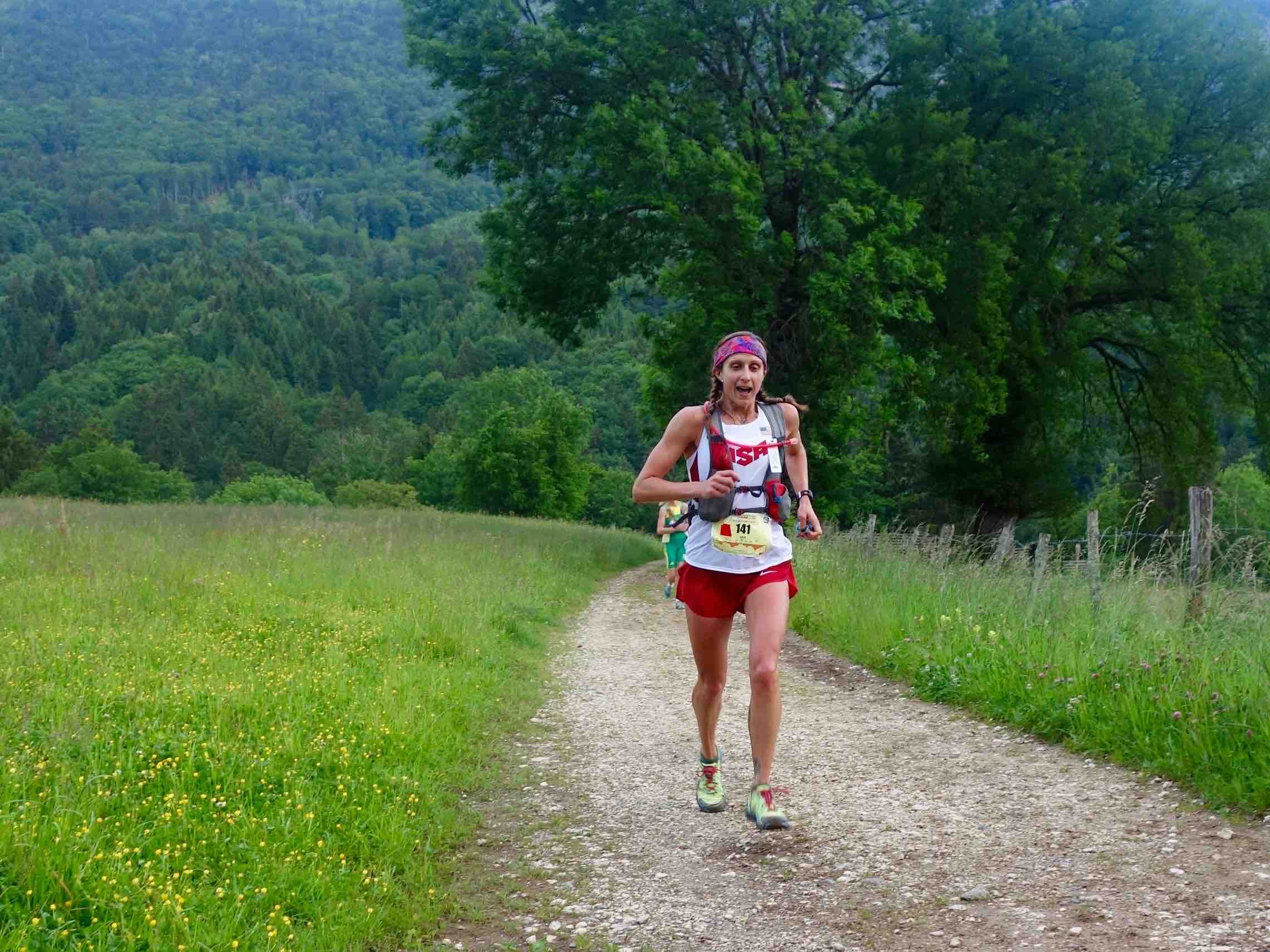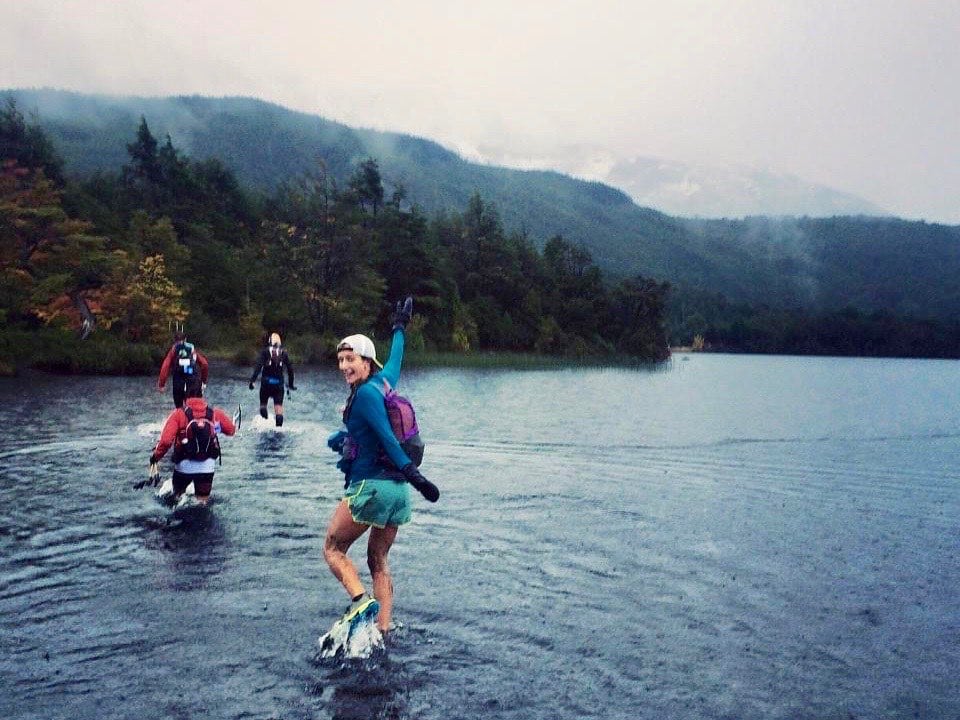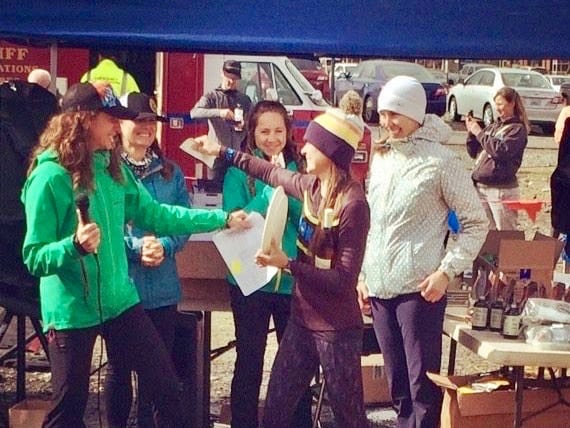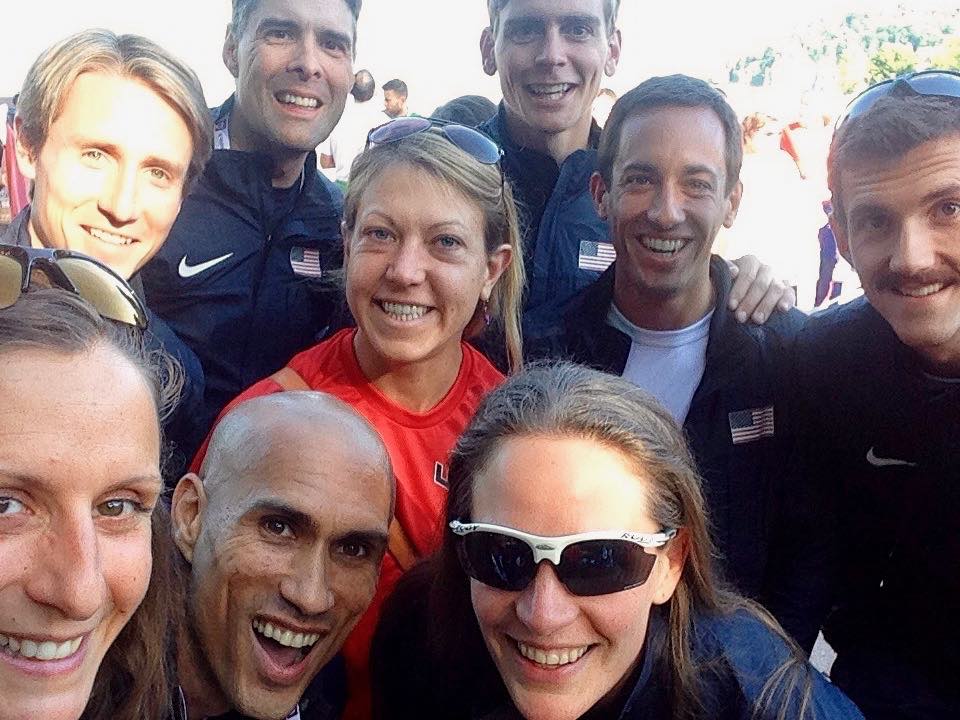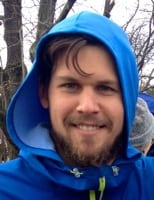Eighteen years ago, Krissy Moehl ran atop a ridge in the Chuckanut Mountains. As she danced along the trail, high above the coastline near Bellingham, Washington, distant sounds of clapping and exalted voices traveled up from the valley far below. A track runner for many years before, Moehl immediately recognized the sounds as applause from a track meet at a school down the hill. Moehl was 22 years old and racing her first ultra at the Chuckanut 50k. In that moment, she had something like an epiphany.
“I still remember feeling that, this is my place, this is where I’m supposed to be, these are the people that I’m with…. And to find that at 22 years old? I feel very thankful that I found it so young.”
In many ways, Moehl was in the right place at the right time. She was working at a running store in Seattle with Scott McCoubrey, Scott Jurek, and other big-time ultrarunners. She was rather easily convinced to run Chuckanut for the first time in 2000 and running far is all that she’s known since. Her days of running track and cross country were readily swapped for long days in the mountains. Moehl was in love with the community, too, and so the transition was easy. Now, all these years later, it seems that her love of the sport and its people remains just as strong.
Even more, finding her place at such a young age has fueled Moehl’s spirit and given shape to her life. Eighteen years into the sport, she has immersed herself in all aspects of it; she’s been a fierce competitor, considerate coach, earnest author, budding public speaker, and long-time race director. And to the very latter of those immersions, it’s remarkable that Moehl has been at the helm of the Chuckanut 50k for nearly her entire career as a competitor. In 2003, after winning the race twice, she became co-race director at the age of 24.
When I asked her how she had the capacity or desire to start race directing at such a young age, when she was competing at such a high level, her response indicated that she never really entertained such a question. She was then and is now less concerned with the challenges and responsibilities of race directing—though she attends to those duties with professionalism—than with continuing a race that could facilitate an epiphany for another young runner. And, when prompted to explain why she would choose to direct the Chuckanut 50k, and accordingly be unable to race the event that got her started in ultrarunning, she took me back to that moment on the ridge, when she was floating along a trail in the Chuckanut Mountains.
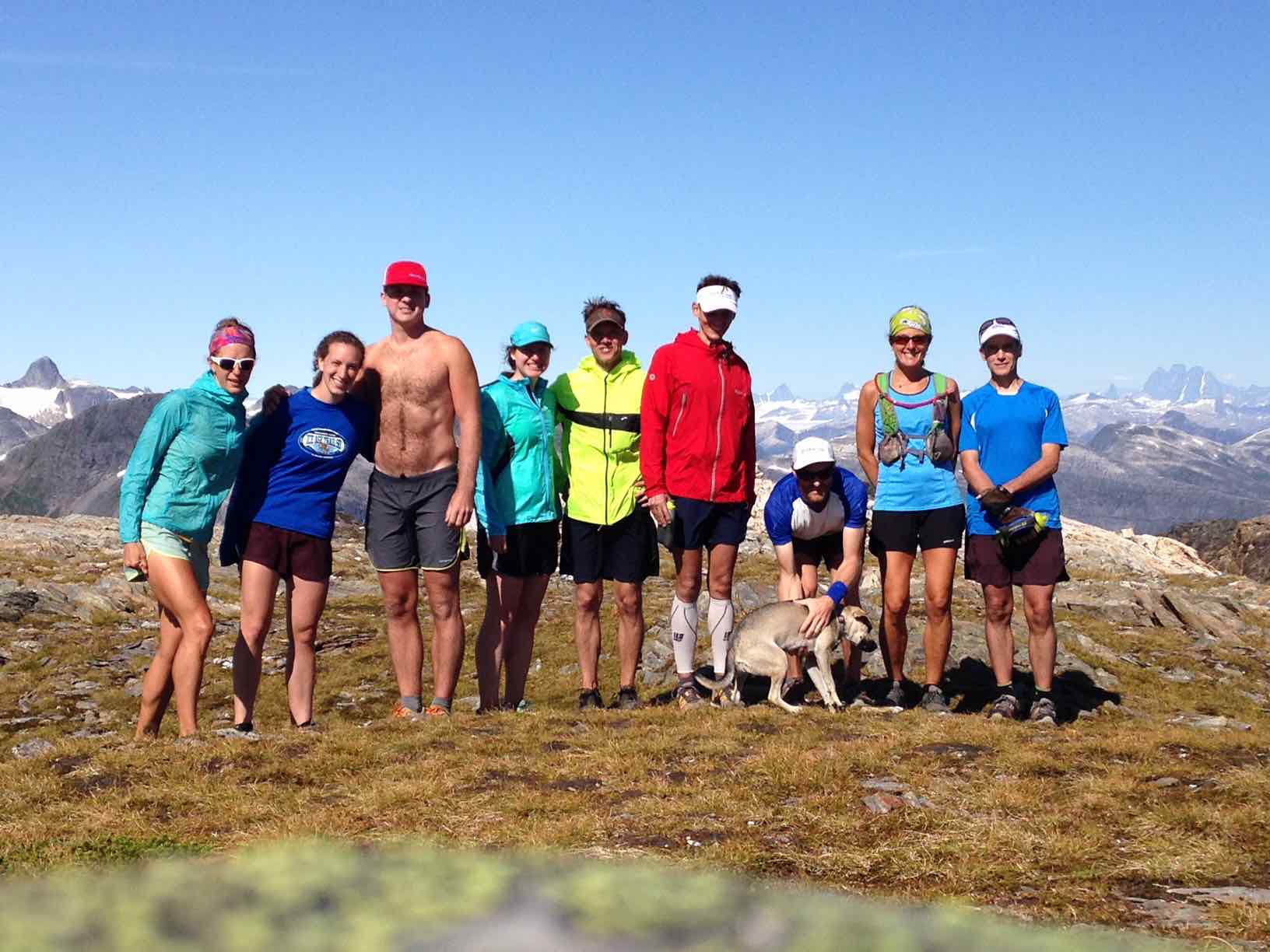
Krissy (far left) and others at Geoff Roes’s Alaska Running Camp. All photos courtesy of Krissy Moehl unless otherwise noted.
“All of those emotions [from my first ultra experience] wrapped up in the fact that the race might not happen again? I couldn’t let that go. I decided that I needed to make sure other people could have a similar experience or connection to something that was so special.”
For Moehl, to a large extent, the sport of ultrarunning is about sharing experiences with other people. It’s easy to see that ultrarunning’s community is at the center of everything she does in the sport today.
“Running far is all that I knew; I didn’t know any other way. I like the actual running part of running, and the stories. Not the medals or the swag. That’s what draws me to ultrarunning. The sport wouldn’t be what it is without the people. ”
How was she able to start race directing at such a young age? She points not to her drive or work ethic or skills but to the running community in Bellingham.
“I’ve had a lot of mentor-type people through jobs I’ve held and friendships. I’ve been so lucky. Like with Chuckanut, there’s so much more around [that race] than what I put into it. The race happens because of the community and their love for it.”
Amazingly, just one week before the 2018 Chuckanut 50k in March, Moehl raced 100 miles in China. She was jet legged when she returned to Bellingham a few days before the race. “The efforts of the community are what made that race happen. I never could have done it alone,” she insists. After the race, Moehl saw pictures online from one of the aid stations where they had alcoholic shots to lift people’s spirits. Moehl points to this example to explain how volunteers help shape the culture of the race.
How did she become so successful in the sport of ultrarunning? Moehl doesn’t focus on the hours of pain and suffering she’s amassed or how dedicated she’s been over the years. She refers to her mentors, training partners, and other people who have helped her along the way, like Scott McCoubrey, Jeff Browning, Scott Jurek, and others, and her I’ll-try-anything attitude that she attributes to her parents, who have always encouraged her to try new things and say ‘yes’ to opportunities.
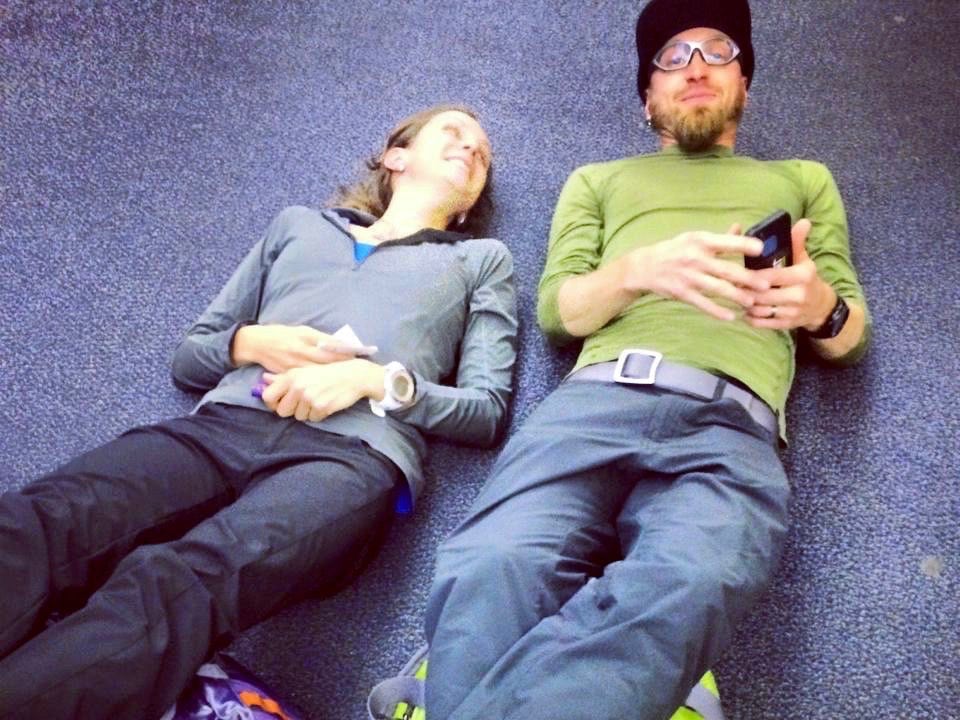
Clowning around with ‘Bronco Billy,’ aka Jeff Browning, one of her key training partners and adopted big brother.
“I met the right people at the right time. I came in and moved through the sport with an attitude that I wanted to try things. I was surrounded by the people that helped shape who I became. So, I attribute it to the attitude I developed, thanks to my parents and the people around me during those formative years.”
How, after nearly two decades of competitive ultrarunning, was she able to win the 160-kilometer 2018 Mt. Gaoligong Ultra in China? Moehl doesn’t cite her miles of training or months of preparation. She cites the energy at the aid stations, the in-race help from her boyfriend, a fellow competitor with whom she shared later miles, and the messages of support she received during the race.
“I’ve always been a runner and I always identify as a runner, but when I found trail running, the energy came full circle. That’s who I connect with, that’s what I identify as. When you identify as a runner, [running] is not just your exercise for the day. There’s a lot more that goes into it. I put a lot of energy into it, and the trail running community feeds that.”
The fact that Moehl identifies as a member of the running community, and not just a runner, is a powerful fact. She doesn’t understand running as just running; she sees it as part of a larger community of people who make running what it is. For example, when she was running the Mt. Gaoligong Ultra last month, on a ridge trail later in the race and at night, it was windy and the course markings had come off the foliage and lay on the trail. All of a sudden, in the middle of her own race, she found herself picking up the markings and putting them back up so that runners behind her wouldn’t get lost. Indeed, for Krissy, running isn’t just running.
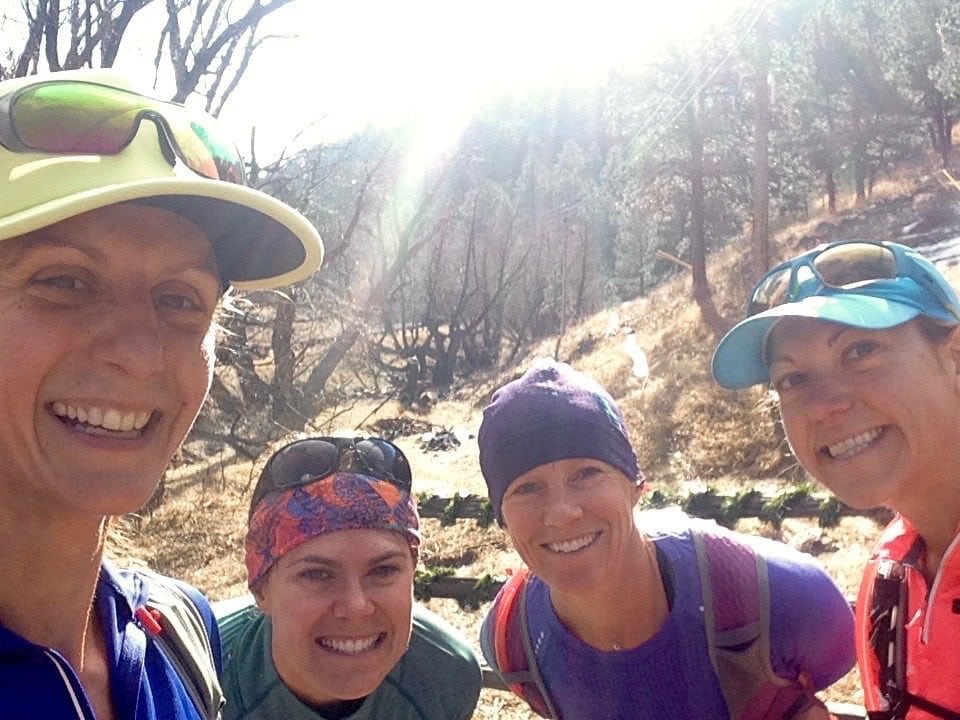
During her time living in Boulder, Colorado, Krissy loved her runs with fellow women. From left to right is Krissy, Gina Lucrezi, Darcy Piceu, and Cassie Scallon.
Moehl’s relationship with ultrarunning’s community is symmetrical. For every breath of joy and morsel of knowledge she’s taken from the sport, she’s given it back equally in kind. It’s a nearly constant theme for her, from race directing to her own racing.
Early in her career, Moehl says that she was like a sponge. Among some of ultrarunning’s best like Hal Koerner, Ian Torrence, and Scott Jurek, she listened and learned and applied what she learned. She learned how to train for ultras, how to race long distances, and how to be successful in the sport—which by all accounts she has been. Today she spreads that knowledge widely by coaching runners across the country. Similarly, she’s offered her expertise to a broader audience through a TEDx talk in 2011 and more recently in book form with Running Your First Ultra: Customizable Training Plans for Your First 50k to 100-Mile Race.
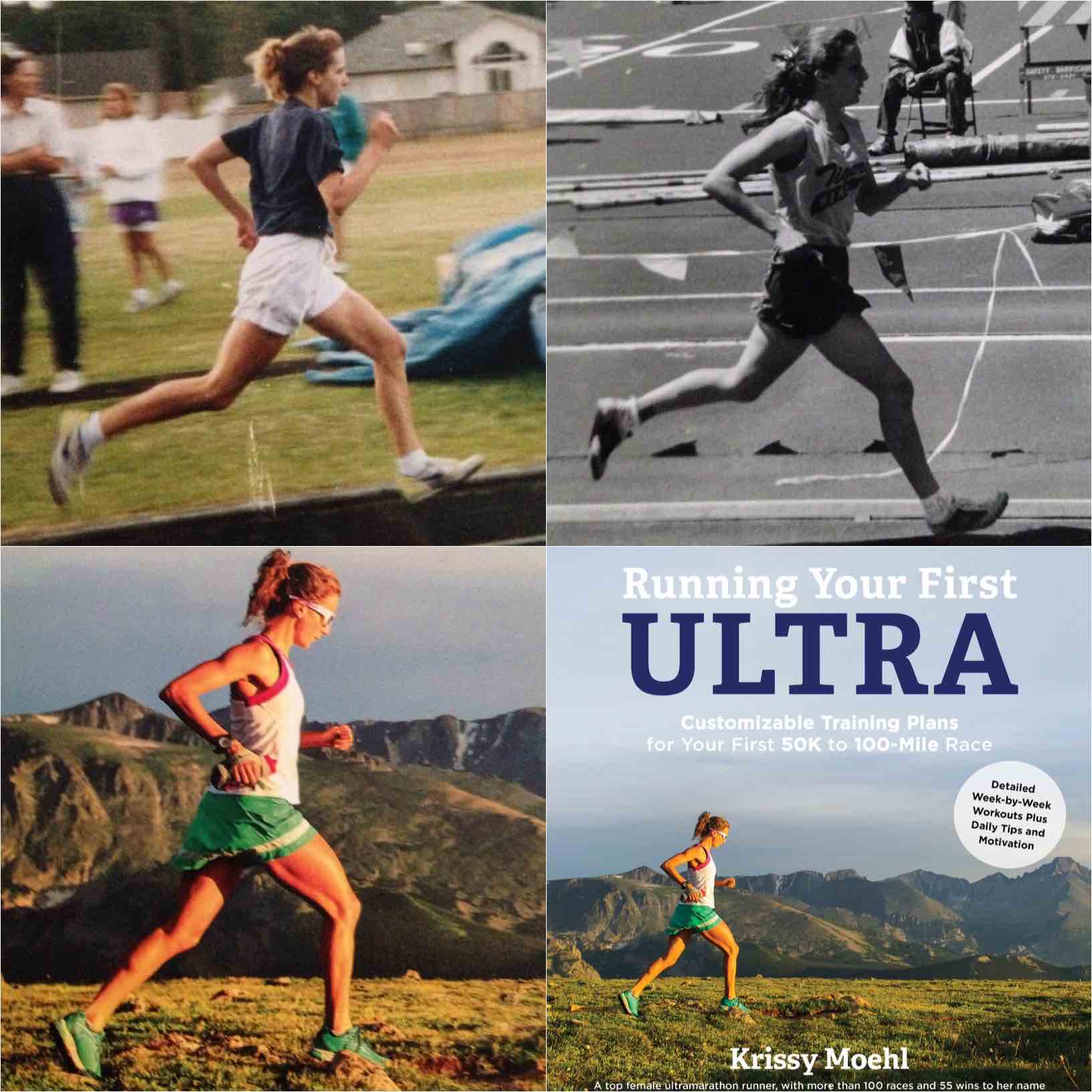
Krissy in motion (from upper left, clockwise): at her final 8th-grade race; at her senior high school state meet; the photo for her book cover; and her book itself, Running Your First Ultra.
“Now people come to me for that knowledge. I’m the ‘old sage,’ if you will, and people want to know how to do things. It doesn’t seem like that long ago that I was the sponge looking for information. It’s the natural progression to help other people understand the sport, and help people find their own way,” Moehl reflects.
Among a laundry list of accomplishments, some of her noteworthy wins include the Wasatch Front 100 Mile, HURT 100 Mile, Hardrock 100 Mile, Vermont 100 Mile, and UTMB. She proved a maverick when she won the 2003 UTMB at a time when few Americans traveled to Europe to race ultramarathons. (She won the race again in 2009.) In 2005, she became the youngest person to ever complete the Grand Slam of Ultrarunning, doing so in what was then and still is now the second-fastest time by a female.When she won Hardrock in 2007, she was third overall and established a then course record. I think you get the idea: Krissy Moehl is a badass ultrarunner.
If results were all that mattered, anyone in the ultrarunning community would have good reason to take heaps of advice from Moehl. But I think that she has much deeper lessons to teach, advice and insight that goes far beyond the narrow reach of times and places across various distances by foot. Sure, Moehl recognizes that running is just running. She understands that ultrarunning is just really far running, too. But she also realizes that, within running, you can find some of the best parts of life. For Moehl, it’s the people and community involved in the sport that really matter, and it’s the experiences and stories behind those people that truly inspire. That’s why she gives back in the form of race directing, coaching, writing, and public speaking.
“Running 100 miles is a pretty selfish endeavor. But if that can inspire… my acupuncturist tells me that he uses me as an example. He loves his practice, but he hates the paperwork. But he asks himself, What would Krissy do? Would she stay on the couch or get up and do her run that she has to do if she wants to be able to go race 100 miles? And that’s what it’s about… it allows someone like me to inspire in the same way that I’ve been inspired.”
The ultrarunning community might not be the place for everyone and it might not have the right people for everyone. But it’s the right place for Krissy Moehl and its people are her people. She recognizes this good fortune and she tries to pay it forward. It’s that community and those people that have led to her success. And she wants others to succeed, too, because success for its own sake isn’t what Moehl is after. Running is most fulfilling, she thinks, when it helps to inspire others.
On that day 18 years ago when Moehl was navigating a trail on a ridge in the Chuckanut Mountains during the Chuckanut 50k, when she’d realized she’d found her place, she wasn’t alone. She was running with Uli Steidl and Scott McCoubrey. She hasn’t been alone and she’s been inspiring ever since.
Call for Comments (from Meghan)
Calling all Krissy Moehl stories! Have you run or raced with Krissy? Have you run the Chuckanut 50k under her direction? Have you read her book or seen her speak? How has Krissy inspired you in our sport? Leave a comment to share your story.
